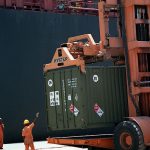Decoding OSRA: Section 11. Investigations
Introduction
It seems like every week there’s an international shipping news story about shippers’ filed complaints against carriers and rulings on them. We’re still only beginning to see how the recent and ongoing changes to U.S. shipping law will affect businesses’ imports and exports as well as carriers’ and other industry stakeholders’ operations within maritime shipping. At Universal Cargo, we want to help shippers know how law changes will affect them. What exactly does the Ocean Shipping Reform Act (OSRA) say and do? This blog series goes through it section by section, so you can see exactly what our lawmakers changed in the U.S. Code dealing with shipping.

We’ll give you the OSRA text; the text of the U.S. Code, usually in Title 46, before and after its amendments; and consider what those changes mean for U.S. importers and exporters.
Previously covered in this series:
- Series Introduction & Quick Coverage of Section 1
- Section 2
- Section 3
- Section 4
- Section 5
- Section 6
- Section 7
- Section 8
- Section 9
- Section 10
Obviously, that means today we’re covering Section 11 of OSRA. Let’s see exactly what it says and changes…
Quick Overview
Section 11 of OSRA is a very short section that adds fees and charges to agreements and general conduct that the Federal Maritime Commission (FMC) was already given authority to investigate.
There are three small amendments added to Section 41302 of Title 46. Each amendment just turns “agreement” or “conduct or agreement” into a list that includes “fee” and “charge” in it. Lawmakers might have rushed a little on this section because it does appear they made a couple of small grammatical errors.
In addition to the minute amount of amending Section 11 does, it also requires the FMC to publish a report that appeared to already have been published before this legislation was passed.
Section 11 Text
SEC. 11. INVESTIGATIONS.
(a) Amendments.--Section 41302 of title 46, United States Code, is
amended--
(1) in subsection (a), in the first sentence, by striking
``or agreement'' and inserting ``agreement, fee, or charge'';
and
(2) in subsection (b)--
(A) in the subsection heading, by striking
``Agreement'' and inserting ``Agreement, fee, or
charge''; and
(B) by inserting ``, fee, or charge'' after
``agreement''.
(b) Report. – <<NOTE: Public information. Web posting.>> The Federal
Maritime Commission shall publish on a publicly available website of the
Commission a report containing the results of the investigation entitled
``Fact Finding No. 29, International Ocean Transportation Supply Chain
Engagement''.
Original Title 46 Text
§41302. Investigations (a) In General.—The Federal Maritime Commission, on complaint or its own motion, may investigate any conduct or agreement that the Commission believes may be in violation of this part. The Commission may by order disapprove, cancel, or modify any agreement that operates in violation of this part. (b) Effectiveness of Agreement During Investigation.—Unless an injunction is issued under section 41306 or 41307 of this title, an agreement under investigation by the Commission remains in effect until the Commission issues its order. (c) Date for Decision.—Within 10 days after the initiation of a proceeding under this section or section 41301 of this title, the Commission shall set a date by which it will issue its final decision. The Commission by order may extend the date for good cause. (d) Sanctions for Delay.—If, within the period for final decision under subsection (c), the Commission determines that it is unable to issue a final decision because of undue delay caused by a party to the proceeding, the Commission may impose sanctions, including issuing a decision adverse to the delaying party. (e) Report.—The Commission shall make a written report of every investigation under this part in which a hearing was held, stating its conclusions, decisions, findings of fact, and order. The Commission shall provide a copy of the report to all parties and publish the report for public information. A published report is competent evidence in a court of the United States.
Amended Text
§41302. Investigations (a) In General.—The Federal Maritime Commission, on complaint or its own motion, may investigate any conduct[,] agreement, fee, or charge that the Commission believes may be in violation of this part. The Commission may by order disapprove, cancel, or modify any agreement that operates in violation of this part. (b) Effectiveness of Agreement, [F]ee, or [C]harge During Investigation.—Unless an injunction is issued under section 41306 or 41307 of this title, an agreement, fee, or charge under investigation by the Commission remains in effect until the Commission issues its order. (c) Date for Decision.—Within 10 days after the initiation of a proceeding under this section or section 41301 of this title, the Commission shall set a date by which it will issue its final decision. The Commission by order may extend the date for good cause. (d) Sanctions for Delay.—If, within the period for final decision under subsection (c), the Commission determines that it is unable to issue a final decision because of undue delay caused by a party to the proceeding, the Commission may impose sanctions, including issuing a decision adverse to the delaying party. (e) Report.—The Commission shall make a written report of every investigation under this part in which a hearing was held, stating its conclusions, decisions, findings of fact, and order. The Commission shall provide a copy of the report to all parties and publish the report for public information. A published report is competent evidence in a court of the United States.
Additional Mandate
At first glance, the following text – Subsection (b) of OSRA Section 11 – seemed like an amendment or replacement for subsection (e) of Title 46’s Section 41302. Both Subsections have the same “Report” title. However, the lawmakers gave no instruction for this to amend or replace text within Section 41302 nor to amend or replace any other part of Title 46. Thus, we must take this Report subsection to be an additional mandate that’s just made upon the FMC directly from OSRA.
Report. – <<NOTE: Public information. Web posting.>> The Federal Maritime Commission shall publish on a publicly available website of the Commission a report containing the results of the investigation entitled "Fact Finding No. 29, International Ocean Transportation Supply Chain Engagement".
There’s not much to say about this other than it’s consistent with previous sections requiring the FMC to publish data for the public. Plus, the specified report here was published before the final version of OSRA that we’re examining in this series was passed into law. Lawmakers appear to be at least attempting to increase transparency in the ocean shipping sector.
If you want the details around the report, you can click here for the FMC’s executive summary of Fact Finding 29.
Observations on Subsection (a), Subparagraph (1)
The first sentence of Subsection (a) just tells us we’re amending text in Title 46, Section 41302. Subparagraph (1) gives us the first amendment.
Originally, the FMC was given the authority to investigate any conduct or agreement it believed violated U.S. shipping code. From what we’ve seen in the previous sections of OSRA, there seems to be a specific focus on ocean freight carriers, but this is certainly not limited to carriers. The amendment adds specific mention of fees and charges to the conduct and agreements the FMC may investigate.
It seems a small grammatical error snuck through the editing of this section of OSRA. No comma was added after conduct, so the list in the law would now read “conduct agreement, fee, or charge.” I added the missing comma inside brackets in the amended text above.
Lawmakers appear to specifically be aiming to appease shippers with the addition of fees and charges to the language here. Shippers have long complained about unfair fees and charges, particularly detention and demurrage fees, in the international shipping industry.
Observations on Subparagraph (2)
Subparagraph (2) is very similar to Subparagraph (1). It even includes a small grammatical error as well. This time, the error is one of capitalization rather than punctuation.
Subparagraph (2) has two subparagraphs of its own: (A) and (B). Both are adding fee or charge as something the FMC can investigate where the original text stopped at agreement.
The error comes in Subparagraph (A). The words “fee” and “charge” should be capitalized, as they are being inserted into the title of a subsection where the rest of the words are capitalized.
Maybe the lawmakers were a little tired when writing and editing this section of OSRA. I know grammatical errors, often much worse than these, have slipped through onto Universal Cargo blog posts I’ve written and edited. Thus, I’m not going to judge the lawmakers too harshly on the punctuation and capitalization errors that slipped into the bill. I did, however, correct the mistake inside of brackets in the amended text of the law.
I already talked about the additional mandate, which is the only thing in Section 11 of OSRA after Subparagraph (2), so we can jump straight to the…
Conclusion
Section 11 doesn’t really make much change to U.S. shipping code. It could be argued that fees and charges, which is a bit redundant in and of itself, could be included in “any conduct” that the FMC was already granted authority to investigate.
The lawmakers appear to be showing their commitment to responding to shippers’ complaints by adding this language to Title 46. As stated before, fees and charges are a major concern of shippers, and Congress wanted to show it is listening to shippers’ complaints.
Additionally, by the time the legislation was passed, the report this section requires to be published was already posted online. Thus, this section – in and of itself – appears to have little effect on international shipping law.
Of course, there may be something you notice in Section 11 of OSRA that I didn’t take into account. If there is, please share it in the comments section below.
Stay tuned for when Decoding OSRA continues, looking at Section 12….





